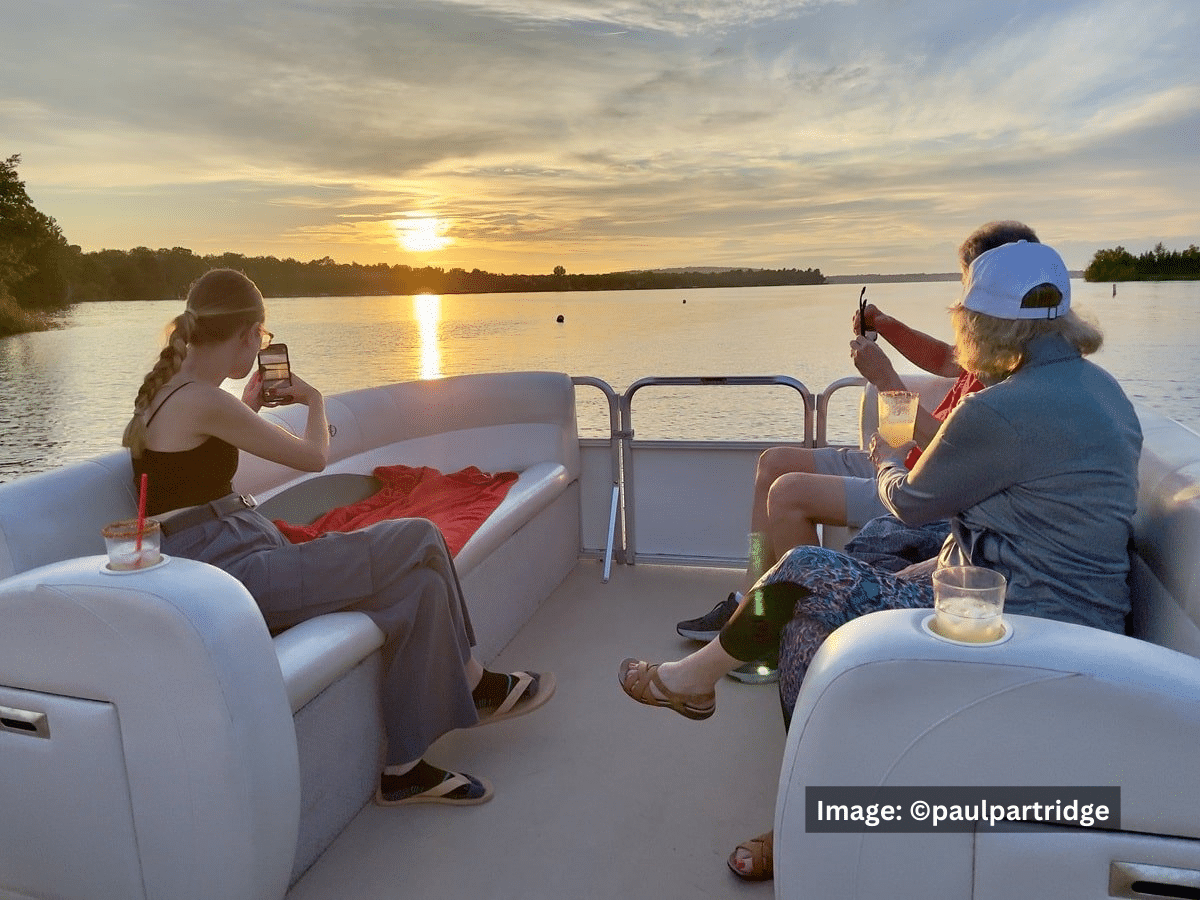Table of Contents
There was a time when family vacations meant piling into a car, fighting over radio stations, and hoping to reach a national park without too much chaos.
Family travel has changed dramatically since then. Nowadays, many families opt for vacations that bring together not only parents and kids but also grandparents, great-grandparents, aunts, uncles, and cousins. These multi-generational trips can be incredibly enriching for everyone involved.
Truly.
My family experienced our first multi-generational adventure at Disney World nearly 30 years ago (ahead of the trend, clearly). Since then, we’ve shared countless journeys to places like Italy, Spain, Greece, Portugal, and the Caribbean.
With time, we’ve learned that multi-generational vacations come with their own unique set of challenges. Drawing from decades of experience, including a recent trip to Athens, Paros, and Antiparos with family members aged 28 to 71, here are seven tips to ensure a successful and memorable family getaway.
Rule 1: Plan in Advance

When planning, make sure to consider everyone’s preferences, such as budget, dietary restrictions, or mobility needs (like wheelchair accessibility for older family members).
For instance, months before our trip to Greece, my brother-in-law Mark did extensive research to arrange a private boating experience around Paros and Antiparos that catered to all of our needs. The day included swimming, snorkeling, fishing, a bit of history, and a fantastic seafood lunch.
We had the boat entirely to ourselves, complete with our own music, a personalized itinerary, and a wonderful captain and first mate. The boat even had shade for those wanting to avoid the sun—overall, a perfect day.
Could we have booked a boat upon arrival? Sure, but it likely would’ve been a crowded “party boat” or a generic sunset cruise with 40 strangers and subpar food.
Thanks to Mark’s advance planning, we instead enjoyed a private day on the water for under $200 per person.
Rule 2: Rent a House, Not Hotel Rooms
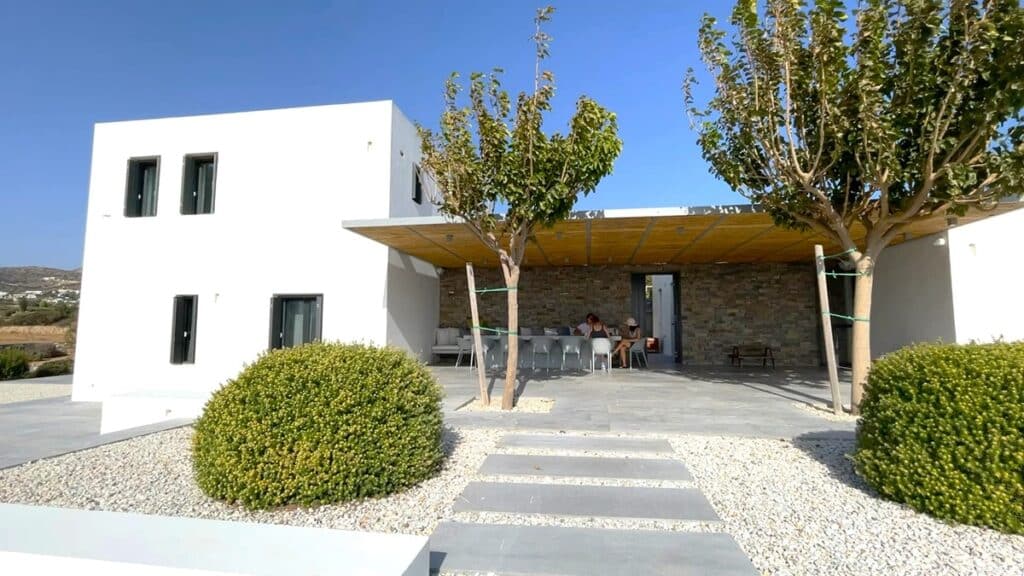
Image: ©paulpartridge
A rental home offers significantly more flexibility and comfort than a traditional hotel. It allows for both shared and private spaces, a kitchen for family meals, and room to unwind.
In Paros, hotel prices can vary widely—from as low as $50 per night for basic accommodations to over $650+ for a high-end stay. For our group needing six rooms, the total cost would have amounted to about $2,300 per person.
Instead, we discovered a luxurious six-bedroom villa, complete with an infinity pool, gym, outdoor theater, and a private chef, all for just $1,350 per person.
Though it was a bit of a splurge, this villa offered far greater value than the hotel rooms, with the added benefit of shared costs among the group. For those with tighter budgets, smaller rooms could be assigned to them, making the overall expense more manageable.
Rule 3: Use Multiple Cars
Having multiple cars offers the greatest flexibility. For example, while one group explores the Kolymbithres Trail, another can enjoy shopping in Naoussa. Some might choose to meditate on the beach at dawn, whereas others could take selfies at Pirate’s Cave on Cape Fanos.
It’s also helpful when managing airport transfers and luggage, particularly if you’re arriving on different flights.
As a general guideline: one car for every four people.
Rule 4: Invest in Local Guides
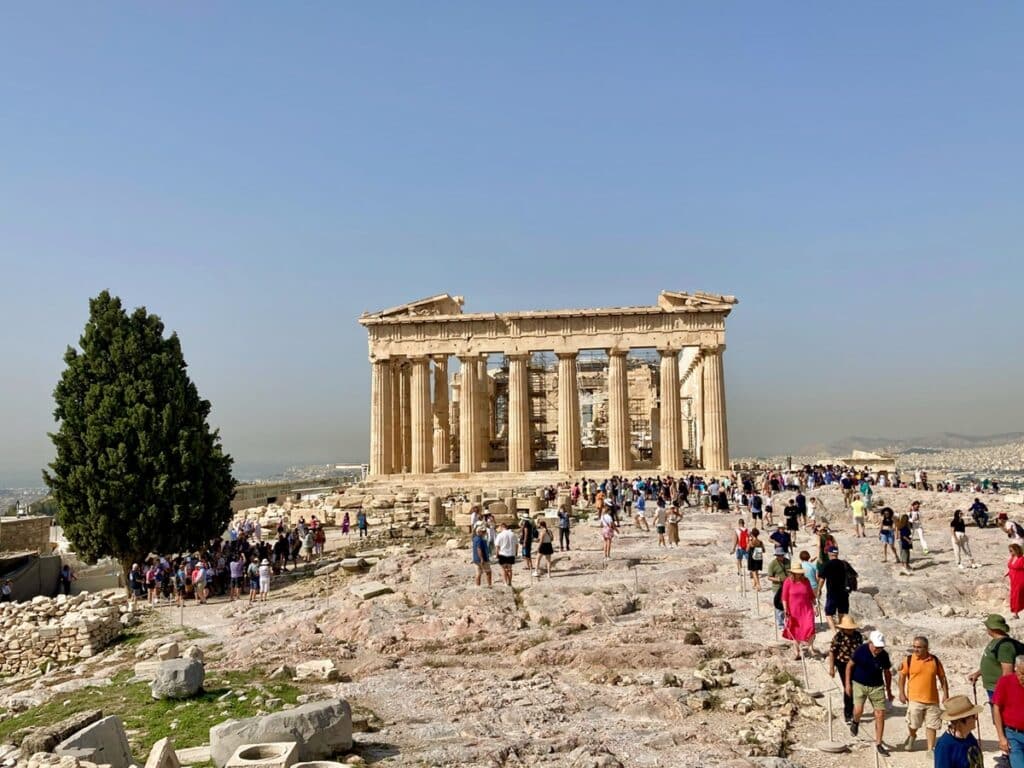
Image: ©paulpartridge
A great guide can transform any location from “interesting” to “unforgettable.” Whether you’re exploring the Parthenon, the pyramids, or historic battlefields, a skilled guide can bring history to life with context, stories, and details that might otherwise be missed.
During our visit to the Acropolis, our guide, Evan, shared fascinating details about ancient Greece. For instance, he noted that the Parthenon, constructed in just nine years without the aid of modern technology, was a remarkable achievement in engineering for its time.
A knowledgeable guide can make any landmark feel like a time machine, connecting you to the past in a profound way.
Rule 5: Create Shared Experiences
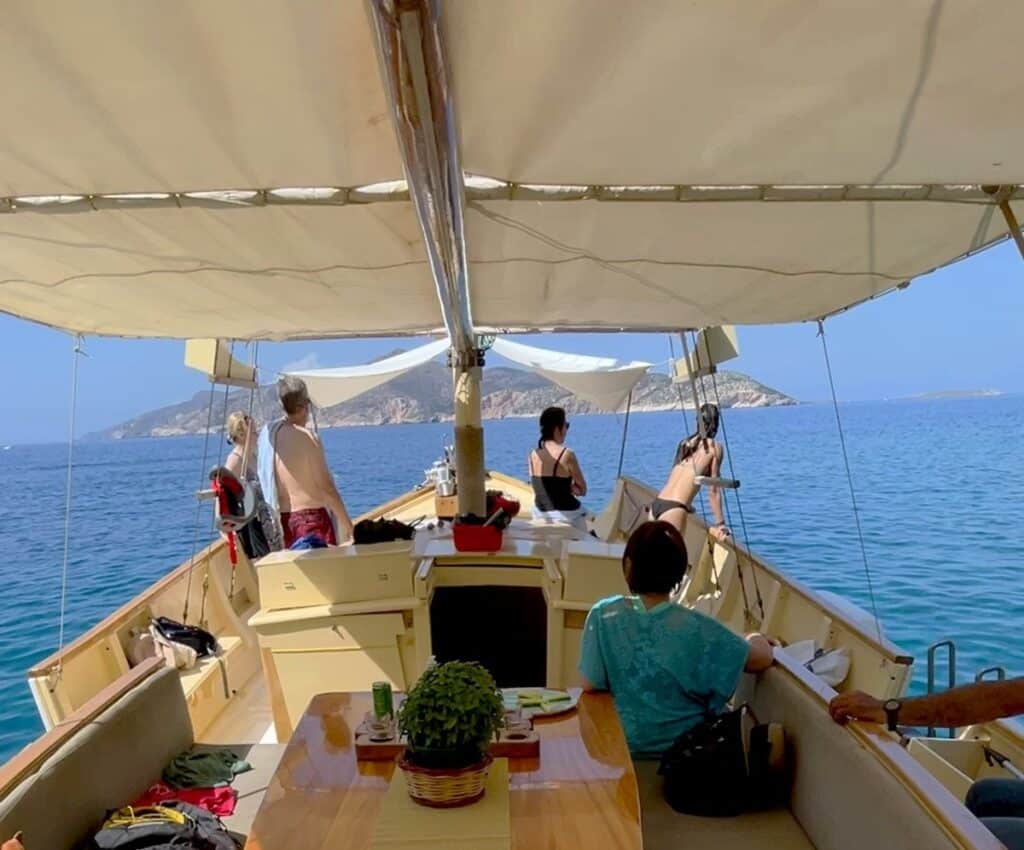
Image: ©paulpartridge
Whether it’s hiking, biking, kayaking, taking a cooking class, or enjoying game nights, shared activities create lasting memories.
At Thanksgiving, when we reminisce about past vacations, it’s not the accommodations that come up but the experiences: the time Mom was thrown from the whitewater raft or Grandpa’s wheelchair incident at Villa D’Este. Or the moment Dad attempted to swallow a flaming sword in St. Lucia.
Our day on the Aegean Sea was filled with unforgettable experiences—snorkeling in the Blue Lagoon, exploring sea caves in Antiparos, visiting the Sanctuary of Apollo on the deserted island of Despotikos, and cliff diving.
One particularly memorable moment happened on our Paros-to-Antiparos cruise. As we overtook a boat full of older French tourists, they suddenly transformed into giddy teenagers, shedding their clothes and joyfully leaping overboard to frolic in the sea.
As we laughed and wondered about their sudden euphoria, the first mate came over and asked if we’d like a drink.
“I’ll have what they’re having,” I replied.
These unhurried moments also give us the chance to share family stories and history. In Greece, we heard about how my brother-in-law once lashed himself to a mast to weather a hurricane and how an Egyptian tribe once offered to buy my wife for eight camels.
Rule 6: Leave Room for the Unexpected
Sometimes, the best memories come from unplanned encounters and detours.
Our chef, Nakos, generously invited us to his family farm in Paros. There, we explored the vegetable garden, counted chickens, played with the dogs, admired the lemon, lime, and mandarin orange trees, and marveled at a 3,000-year-old olive tree (which looked remarkably young for its age).
In Sicily, a similar stroke of serendipity occurred when our guide in Agrigento revealed he was friends with the mayor of Cammarata, the hometown of my mother-in-law’s ancestors.
He had alerted the mayor of our visit, and upon arrival, we were greeted by a welcoming committee that included the mayor, his assistant, and the local town newspaper. The mayor gave us a tour of city hall, showed us around town, organized a lavish lunch, and treated us like VIPs.
So, be sure to leave some room in your itinerary for the unexpected.
Rule 7: Embrace Family Quirks
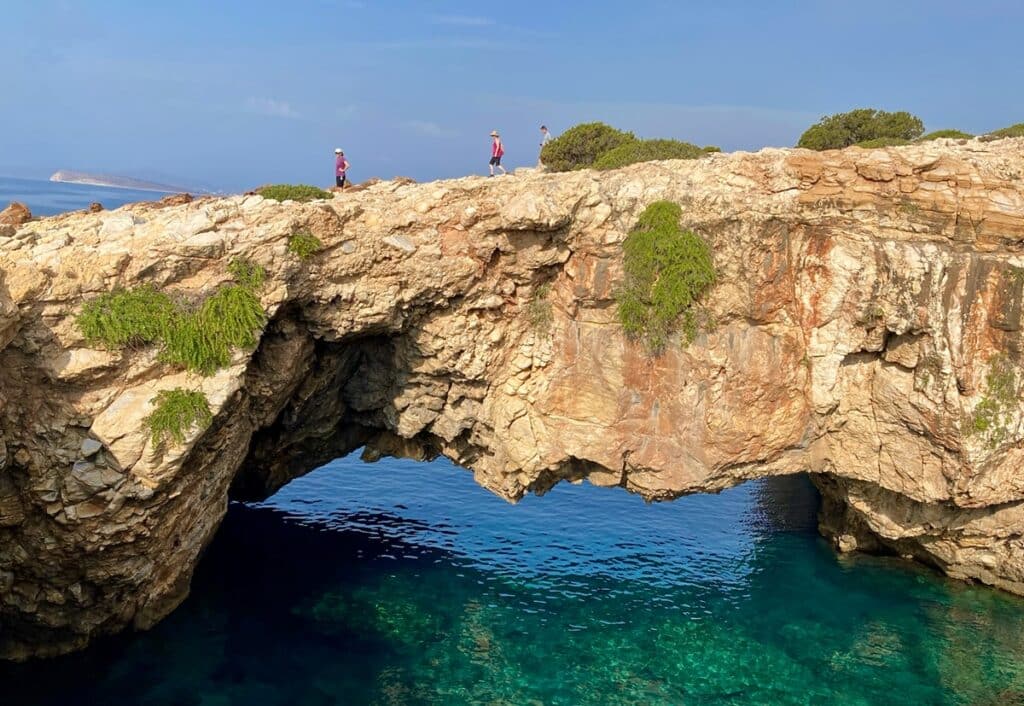
Image: ©paulpartridge
Every family has its quirks, and embracing them can lead to a more enjoyable trip.
For example, my wife takes her role as navigator very seriously, which is great—except when her curiosity about ancient myths and historical figures leads to last-minute directional changes while I’m maneuvering through tight spaces and stick shifts!
And our family has its own “three stages” of getting ready for hikes, which usually means we’re an hour late leaving. But these quirks are part of what makes traveling together fun and memorable.
Another peculiarity: While you might be familiar with the five stages of grief, my travel companions follow three stages of readiness.
Stage 1: Agreeing to hike at 8 a.m. means starting the day with coffee and discussions about the hike at that very hour.
Stage 2: Around 8:20 a.m., the process of getting ready begins.
Stage 3: By 9 a.m., we’re finally prepared to head out the door and go on the hike.
Every family has its quirks and habits. Embracing these idiosyncrasies, rather than fighting them, is key. They make a multi-generational trip unique and often quite entertaining.
Ultimately, the essence of a trip lies not in the destination but in the shared moments along the way.

